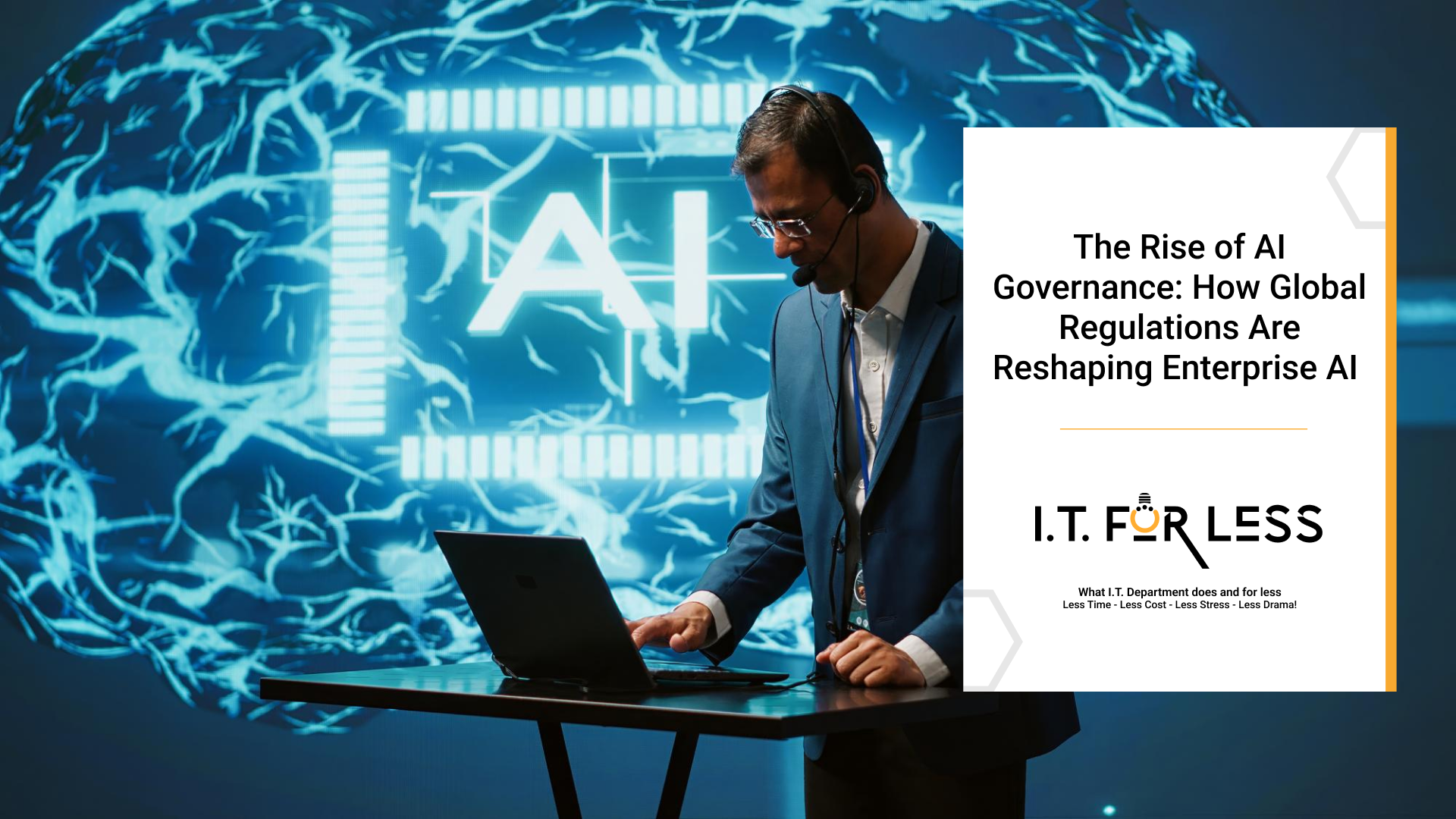Artificial intelligence is no longer a future-focused concept—it has become a central engine of enterprise productivity, decision-making, and innovation. As organisations deploy AI systems across critical business functions such as finance, legal compliance, talent acquisition, cybersecurity, and customer service, governments around the world are stepping in. They aim to ensure AI delivers value without compromising safety, fairness, or public trust. This sets the stage for the rise of AI governance: how global regulations are reshaping enterprise AI in multiple sectors.
This global shift has made AI governance a strategic requirement for modern enterprises. Instead of treating compliance as an afterthought, leading businesses now view governance as foundational to innovation, brand reputation, and long-term competitiveness.
Why AI Governance Matters
AI is powerful, but this power comes with risks that can impact people and businesses if left unchecked.
- Bias in automated decisions: AI systems can unintentionally reinforce unfair patterns in hiring, lending, insurance approvals, or disciplinary processes. This leads to unequal outcomes that harm individuals and damage organisational credibility.
- Opaque “black-box” decisions: Many advanced models produce results without clear explanations. Therefore, teams, regulators, and customers find it hard to understand why certain decisions were made—and whether they are justified.
- Privacy and data-security concerns: As AI consumes massive datasets, improper data handling can expose sensitive information, create regulatory liabilities, and erode user trust.
- Operational and reputational risk: A flawed model can scale mistakes quickly. This results in financial losses, compliance penalties, and public fallout in minutes rather than months.
Strong governance ensures AI systems are ethical, compliant, transparent, and aligned with business values. This enables organisations to innovate confidently rather than cautiously.
Global Regulatory Momentum
European Union: EU AI Act
The EU AI Act represents the world’s most comprehensive regulatory framework, categorising AI systems based on risk and enforcing strict obligations for high-risk applications. This includes requirements around transparency, human oversight, data quality, and audit-ready documentation. For enterprises operating in or serving the EU market, this regulation sets a new global benchmark for responsible AI deployment.
United States and Other Regions
While the U.S. does not yet have a single federal AI law, major federal agencies and state governments are implementing targeted rules. These focus on AI fairness, consumer protection, and data transparency. Countries such as the UAE, Saudi Arabia, Canada, Singapore, and China are also introducing governance frameworks. Each has unique compliance expectations. As a result, global enterprises must navigate a diverse regulatory landscape and align internal systems to multiple standards simultaneously.
How Enterprises Are Preparing
Forward-thinking organisations are not waiting for enforcement—they are laying the foundation for mature AI programs today. Key priorities include:
- Conducting full AI audits to identify where AI is used, assess risks, and determine the controls required for responsible deployment.
- Establishing cross-functional governance committees that involve technology, legal, cybersecurity, compliance, ethics, and business leadership. This ensures AI oversight is not siloed.
- Documenting model development and decision pathways so teams can provide proof of fairness, reliability, and compliance. This is crucial when regulators, auditors, or stakeholders request it.
- Building human-in-the-loop safeguards for critical decisions, ensuring qualified personnel can intervene, validate outputs, and override AI when necessary.
- Investing in training and internal awareness programs so employees at every level understand the organisation’s AI responsibilities, risks, and policy obligations.
This evolution signals a shift from experimentation to structured, responsible adoption.
Practical Steps for Business Leaders
To prepare your organisation for global AI standards and operate with confidence:
- Catalogue all AI systems and use cases across departments and assign risk levels. This is based on business impact, regulatory exposure, and ethical implications.
- Define clear governance roles and accountability frameworks, ensuring leadership oversight and transparent ownership throughout the AI lifecycle.
- Create strong documentation and audit protocols for data sourcing, model training, testing, deployment, and ongoing evaluation.
- Implement continuous monitoring programs to identify performance shifts, bias, security risks, and unintended consequences before they escalate.
- Equip teams with training and guidance so everyone—from data scientists to business users—understands compliance requirements and ethical expectations.
With these foundations in place, organisations can scale AI use confidently while aligning with global regulatory expectations.
Final Thoughts
AI governance is becoming a defining pillar of modern enterprise strategy. Companies that proactively build ethical, transparent, and well-regulated AI systems will gain a competitive edge. They will earn trust from regulators, customers, and the markets they serve.
Strong governance does not slow innovation, it enables growth with confidence, reduces compliance risk, and fosters a culture where advanced technologies work in service of people. It also supports long-term business success.
If your organisation is exploring AI adoption or looking to strengthen its governance framework, I.T. for Less can support you. They offer AI readiness assessments, governance frameworks, compliance guidance, and implementation services tailored to enterprise needs.
